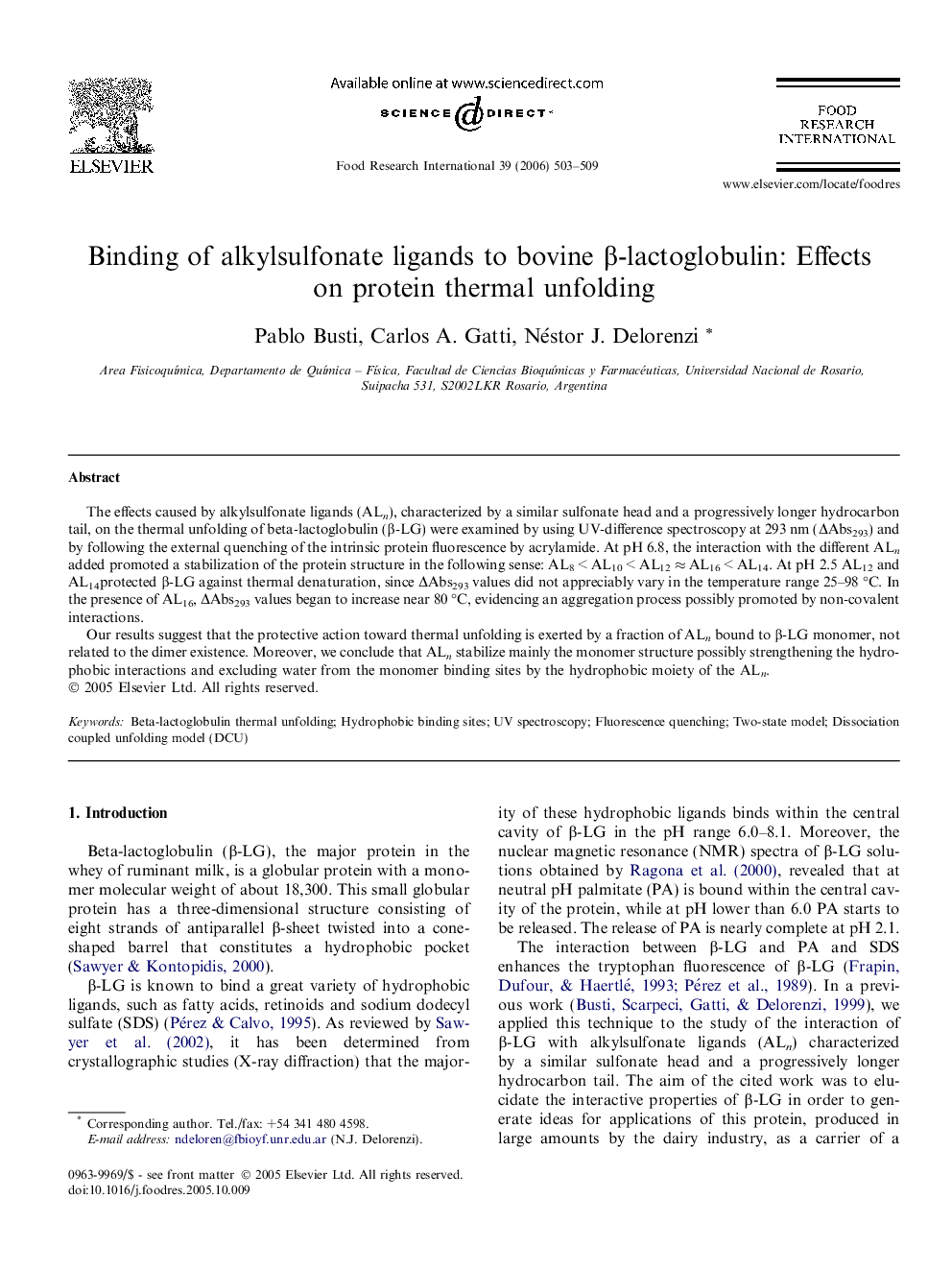| Article ID | Journal | Published Year | Pages | File Type |
|---|---|---|---|---|
| 4563216 | Food Research International | 2006 | 7 Pages |
The effects caused by alkylsulfonate ligands (ALn), characterized by a similar sulfonate head and a progressively longer hydrocarbon tail, on the thermal unfolding of beta-lactoglobulin (β-LG) were examined by using UV-difference spectroscopy at 293 nm (ΔAbs293) and by following the external quenching of the intrinsic protein fluorescence by acrylamide. At pH 6.8, the interaction with the different ALn added promoted a stabilization of the protein structure in the following sense: AL8 < AL10 < AL12 ≈ AL16 < AL14. At pH 2.5 AL12 and AL14protected β-LG against thermal denaturation, since ΔAbs293 values did not appreciably vary in the temperature range 25–98 °C. In the presence of AL16, ΔAbs293 values began to increase near 80 °C, evidencing an aggregation process possibly promoted by non-covalent interactions.Our results suggest that the protective action toward thermal unfolding is exerted by a fraction of ALn bound to β-LG monomer, not related to the dimer existence. Moreover, we conclude that ALn stabilize mainly the monomer structure possibly strengthening the hydrophobic interactions and excluding water from the monomer binding sites by the hydrophobic moiety of the ALn.
